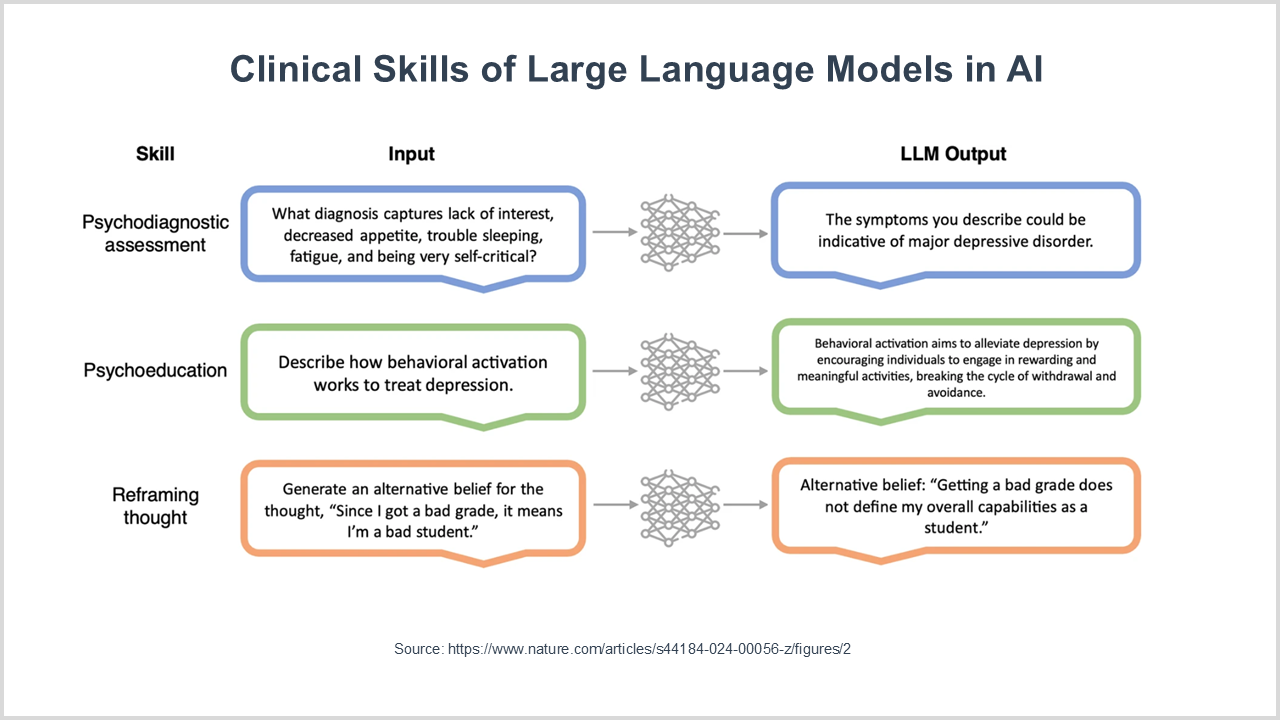One of the performance issues in the mental health field is that almost 40% of consumers with a mental health condition are misdiagnosed. The question is how to improve that problem.
Enter artificial intelligence (AI). A recent article, AI Offers An Intriguing New Way To Diagnose Mental-Health Conditions, in last week’s issue of The Economist, spoke to the potential advancements of applying AI to diagnostics.
It’s not that there hasn’t been the use of technology in diagnostics. Large language models (LLMs) have been used to look for patterns of consumer speech. But these technologies have limitations—cultural nuances, language barriers, and different levels of fluency can skew results. The challenges are illustrated by the fact that LLMs have been shown to fail to diagnose depression in black consumers compared to their white counterparts.
The AI models under development look for subtle changes in a consumer’s voice and interpret sound waves recorded via a smartphone app. In the first, the hypothesis is that people with depression may have distinctive ways of speaking that are too subtle for the human ear to detect. In the second, sound waves are converted into visual maps to detect mental health conditions.

As with all new technology in medicine, AI adoption is still a work in progress, including in the behavioral/mental health sector. Despite these growing pains, the industry is jazzed about AI’s potential. AI is widely seen as part of the solution to the increasing demand for behavioral health services and a shortage of clinicians. The American Psychological Association, while noting that psychologists are “irreplaceable” in the patient care equation, maintains that AI makes therapy more accessible and less costly. AI also automates administrative tasks and is valuable in training new clinicians to meet the professional shortage.
A study of 28 mental health and AI studies revealed high accuracies and provided excellent examples of AI’s potential in mental health care. However, the authors cautioned that these findings should be considered early proof-of-concept works demonstrating the potential of using machine learning (ML) algorithms in assisting with mental health diagnosis.
AI application experts remind us that AI in medicine, including behavioral health, should serve clinicians rather than replace them. The fail-safe is that AI can be trained to know when human intervention is needed. In other words, AI can learn its own limitations.
